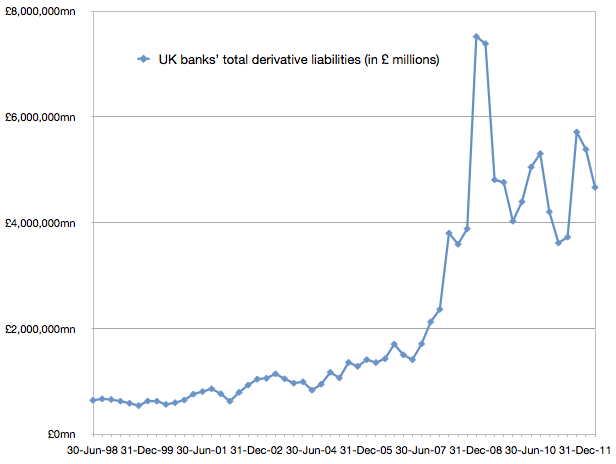According to some media sources Douglas Carswell MP is today bringing a bill to the House of Commons that aims to demonopolise the UK’s legal tender laws. Very much a sign of the times, I believe you will hear a lot more about this idea in the days and weeks ahead. Already, the BBC has picked it up here.
A Conservative MP is to call for a basket of foreign currencies to be made legal tender in the UK.
Such a move would protect savers by allowing them to hold the currency least likely to be devalued, Douglas Carswell will argue in the Commons.
And it would allow consumers to shop around for the best currency deal – perhaps via a smart phone application – when buying goods in shops or online.
Read the whole article.





From the article:
“dea dates back to the early 1970s, when monetarist economist Friedrich Hayek”
“Professor Hayek – the godfather of Thatcherite economic policy – put the idea forward as a potential cure for inflation”
Please correct these boobs!
I agree, please remember this is not us writing , but some ill informed BBC journalist.
The legal tender laws prop up fiat currencies and are probably the single cause of failure when hyperinflation reaches the endpoint. Where there is no alternative medium of exchange that’s when you get a problem, obviously exacerbated by a monetary monopoly of currency that is worthless with no alternative.
Having experienced the Zimbabwe effect one is a little more circumspect about fiat currency, it really can be rendered in zero by government policy. There is a general assumption put about by the left-wing media that money can be created forever without any consequences. Besides being dishonest, this silly theory is patently nonsense. There is a faux optimism that somehow we will muddle through and that the dollar will be just fine. The problem with that theory is that they don’t take account of how a fiduciary currency collapses. Since it is worthless per se is the belief that permits transfer of value throughout the system nothing else. Belief can evaporate in a single moment, or something approaching that. Singularities of a psychological nature are extremely difficult to predict, herd mentality is what you’re dealing with, much like stock market crashes, currency failures can come out of the night for no particular reason at the critical moment. Those who believe in borrowing money forever and never paying it back will automatically create conditions when believability becomes untenable. Without an alternative medium of exchange collapse is more likely is it not?
Relaxing legal tender laws is a very smart move, especially when a Weimar or Zimbabwe moment may coming in the near future, it would be a good move to widen the ambit to include the likes of experimental money such as bitcoin and the like. So long as there are alternative channels for media of exchange there is some prospect of avoiding a complete financial collapse.
The curious question is what happens to government expenditure when it can no longer produce credible currency? One way of ensuring that government expenditure is pruned down to a reasonable size is to invite the collapse of paper money so long as there is an alternative to stand in its place that is no longer controlled by the government printers and keyboard counterfeiters.
Frederick von Hayek discussed private money many years ago; we are now entering an age when it might just become a reality out of necessity. Here in the United States everything runs on the dollar and so does the rest of the world so far as petrodollars and Eurodollars are concerned. One wonders, what happens when the dollar crashes to all those financial reserves? Creating another fiat currency courtesy of some world government organization will not cure the problem; I would venture to suggest that alternative nongovernmental money may soon have its day. There will of course be strident advocacy to retain monopoly power over money, without it the spendthrifts are out of business.
Diluting the legal tender laws or even abolishing them could well be the critical factor that prevents excessive government expansion as well as liberates the economy from never-ending inflation. Returning to a policing function with respect to defining money would probably be a rational alternative to a monopoly not that that should be supported but one suspects the legislators will not want to give up some control over what gives them a living.